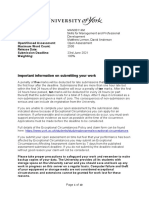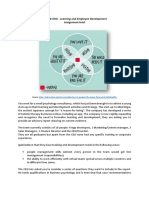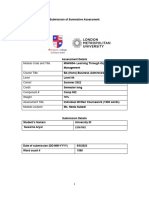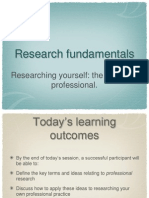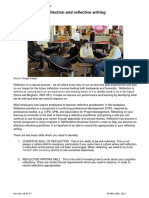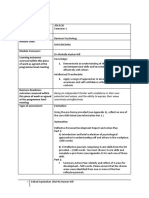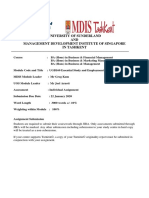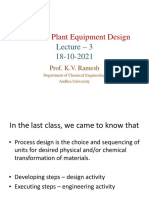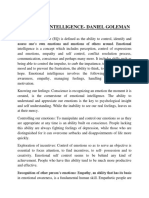0% found this document useful (0 votes)
229 views4 pagesBS4D03 Reflective Portfolio Task Requirements
This document provides instructions for a 3,600 word self-reflective essay on completing a dissertation project. Students are asked to critically reflect on how the process of identifying aims/objectives, discussing industry information, and creating an A3 map and Gantt chart assisted their learning. They should consider how this experience will help apply their knowledge to future business operations and expand their thinking as leaders. The reflection should address assumptions, ethics/values, time management, and learning from experience. References must be included using the Harvard style. The deadline is the end of week 15.
Uploaded by
Hakeem SnrCopyright
© © All Rights Reserved
We take content rights seriously. If you suspect this is your content, claim it here.
Available Formats
Download as PDF, TXT or read online on Scribd
0% found this document useful (0 votes)
229 views4 pagesBS4D03 Reflective Portfolio Task Requirements
This document provides instructions for a 3,600 word self-reflective essay on completing a dissertation project. Students are asked to critically reflect on how the process of identifying aims/objectives, discussing industry information, and creating an A3 map and Gantt chart assisted their learning. They should consider how this experience will help apply their knowledge to future business operations and expand their thinking as leaders. The reflection should address assumptions, ethics/values, time management, and learning from experience. References must be included using the Harvard style. The deadline is the end of week 15.
Uploaded by
Hakeem SnrCopyright
© © All Rights Reserved
We take content rights seriously. If you suspect this is your content, claim it here.
Available Formats
Download as PDF, TXT or read online on Scribd
/ 4


